As of September 8, 2022, 516 attacks on healthcare infrastructure have been verified in Ukraine. These attacks have caused 100 deaths and 129 injuries. Heart to Heart International has been helping fill in the gaps in the healthcare system caused by these Russian attacks and refugee/IDP movement with shipments of medicines, medical supplies and hygiene kits.
On August 24, we received the photos below from our partner HOPE worldwide of our latest shipment of medicines. These medicines are worth more than $7 million and will be distributed by 26 regional hospitals to the clinics and health centers in their regions.
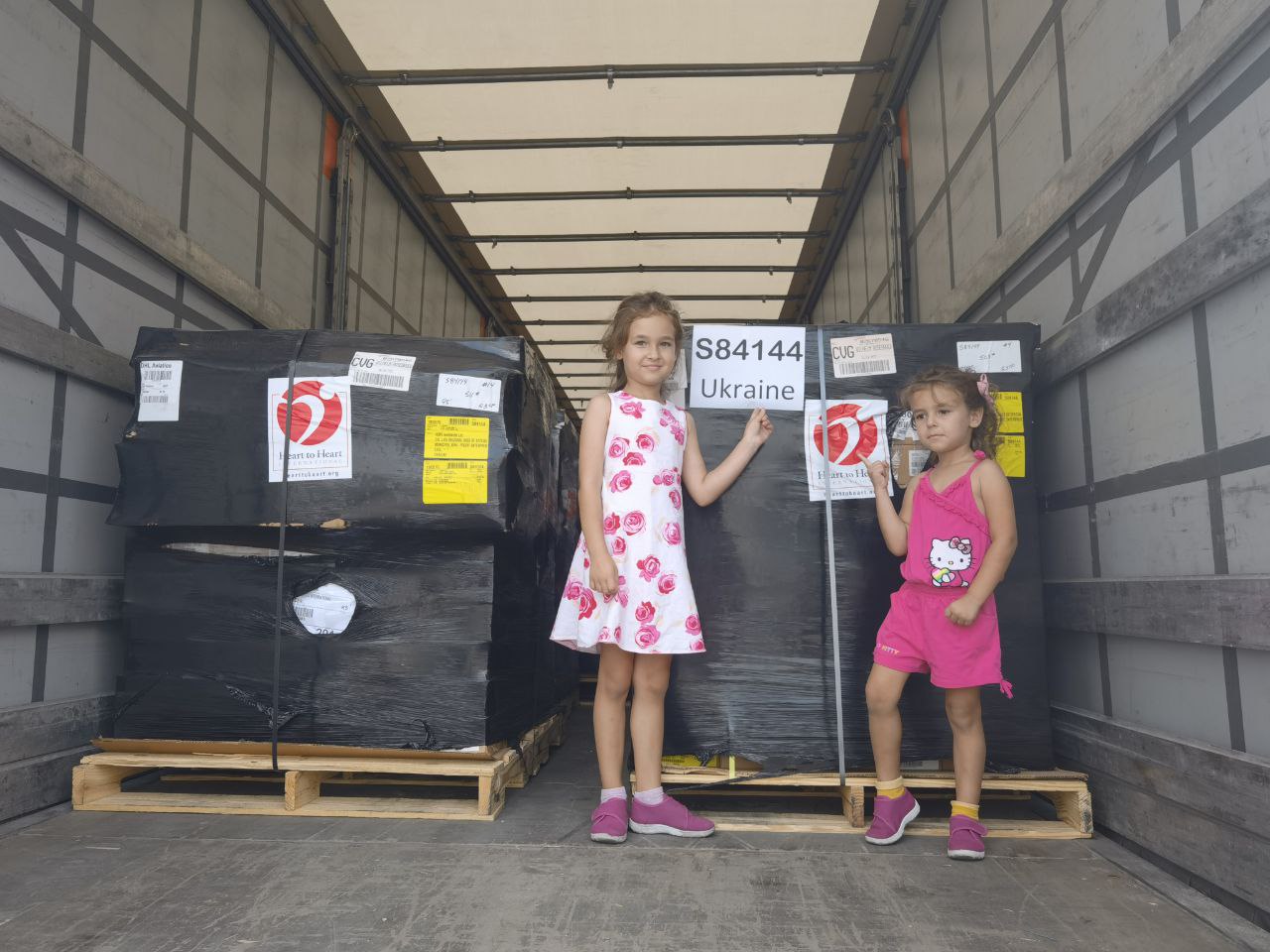
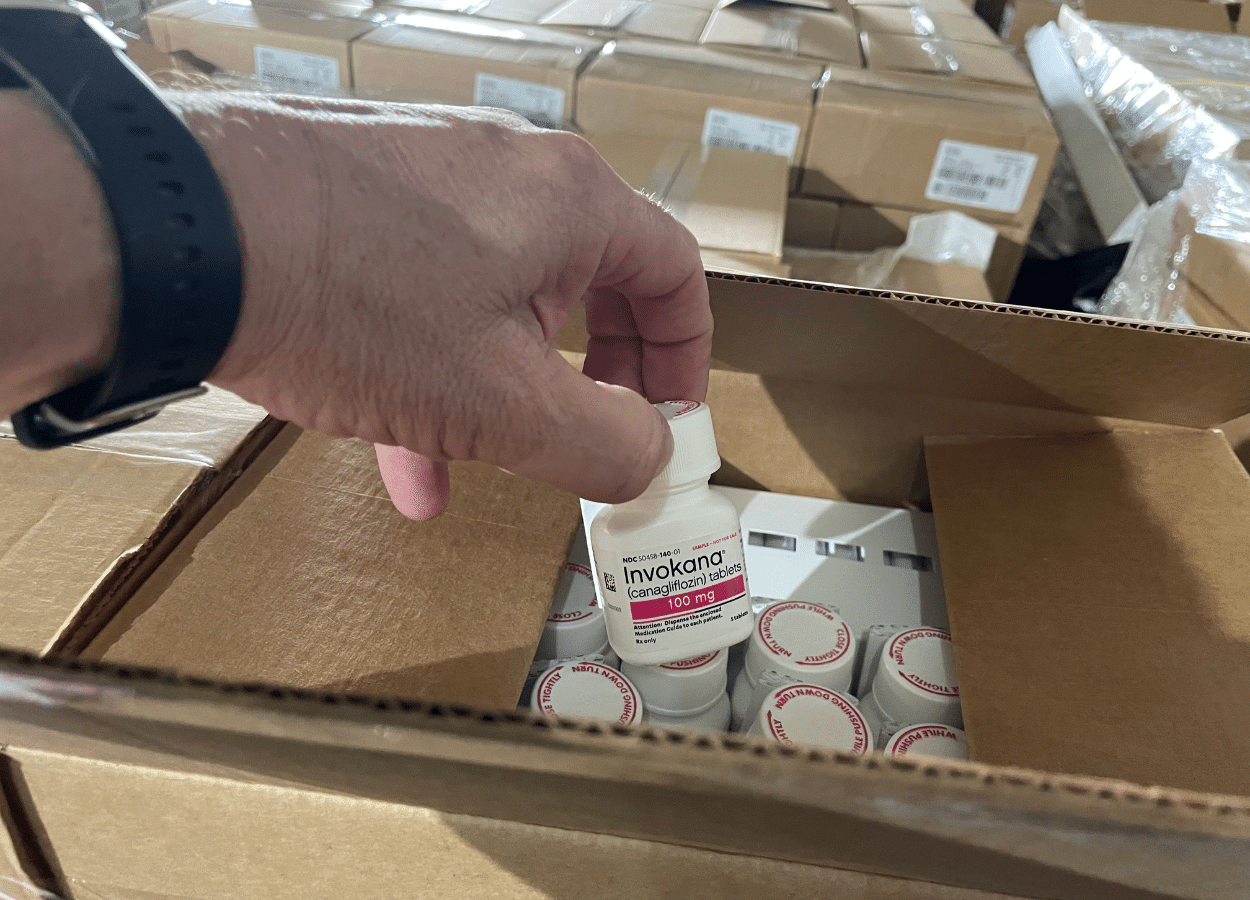
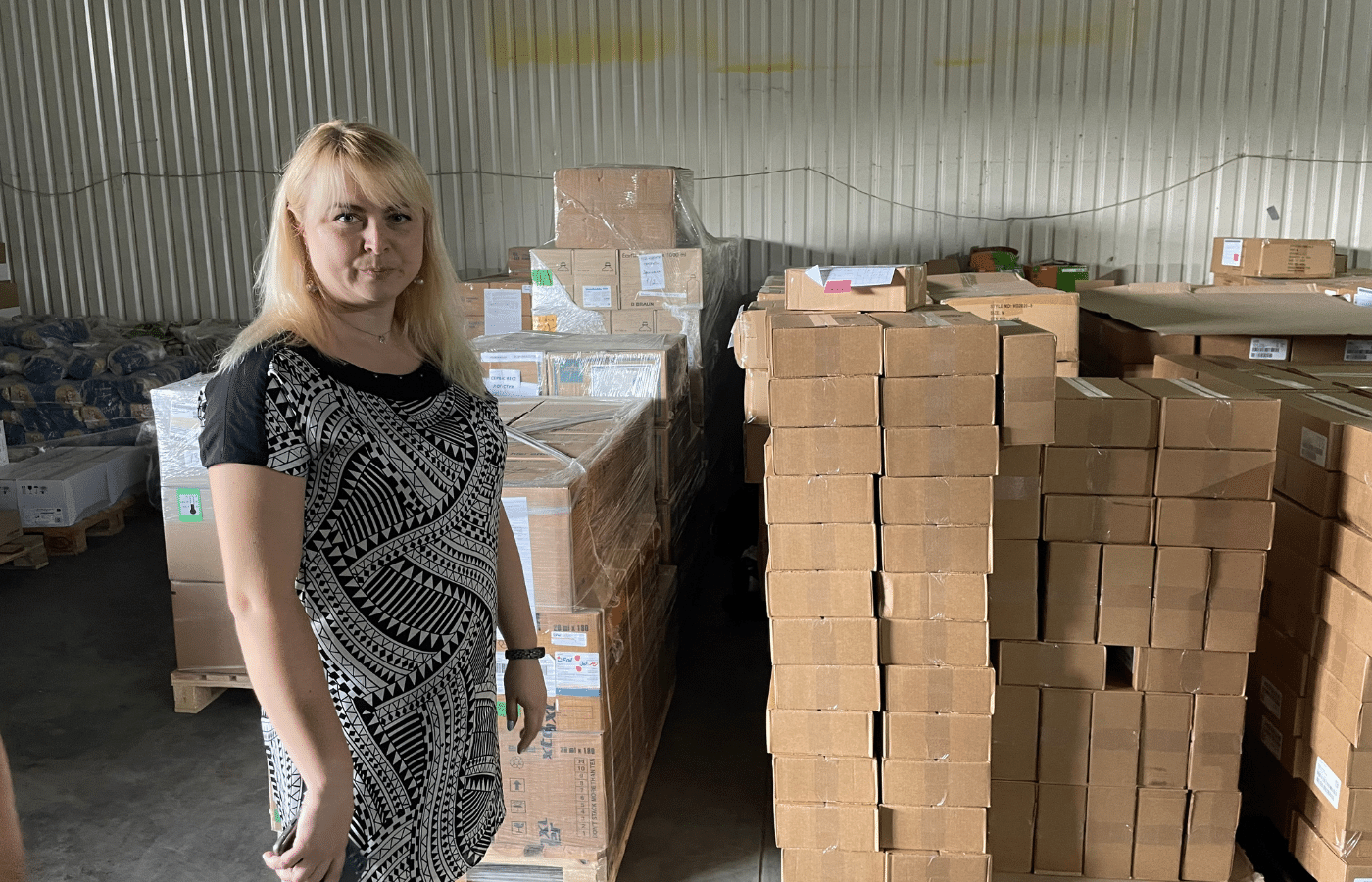
Heart to Heart International’s efforts to deliver medicines and medical supplies to local healthcare facilities is a way to support the health access for people throughout Ukraine, especially those who were not able to leave their home communities. Ukraine’s Deputy Minister of Health Iryna Mykychak said, “By supporting local health care facilities – primary medical care centers and family medicine clinics – we jointly restore the continuity of medical care to people affected by the Russian aggressor. From the first days of de-occupation, the Ministry of Health and partners managed to implement an important project, thanks to which residents of the affected areas felt the care of doctors, restored their health or were directed to further specialized treatment.”
Heart to Heart International has been working with our partner STEP-IN and the Gorta Group to deliver these medicines to hospitals and clinics throughout the country. Some of this medical aid includes Interagency Emergency Health Kits, which contain enough medicines to treat 10,000 people for up to three months (picture below left), and rehabilitation equipment (picture below right) that will help patients with musculoskeletal injuries caused by the conflict.
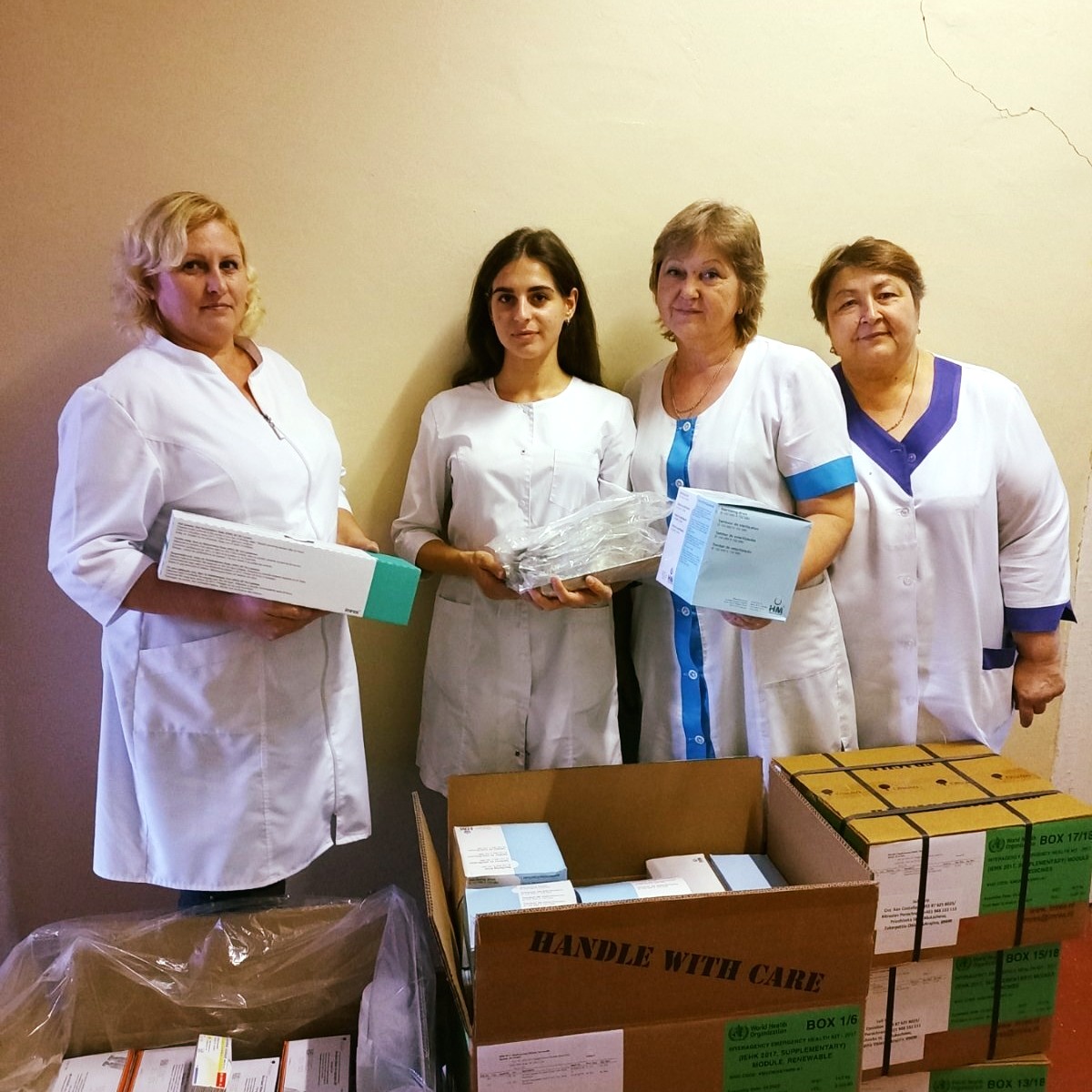
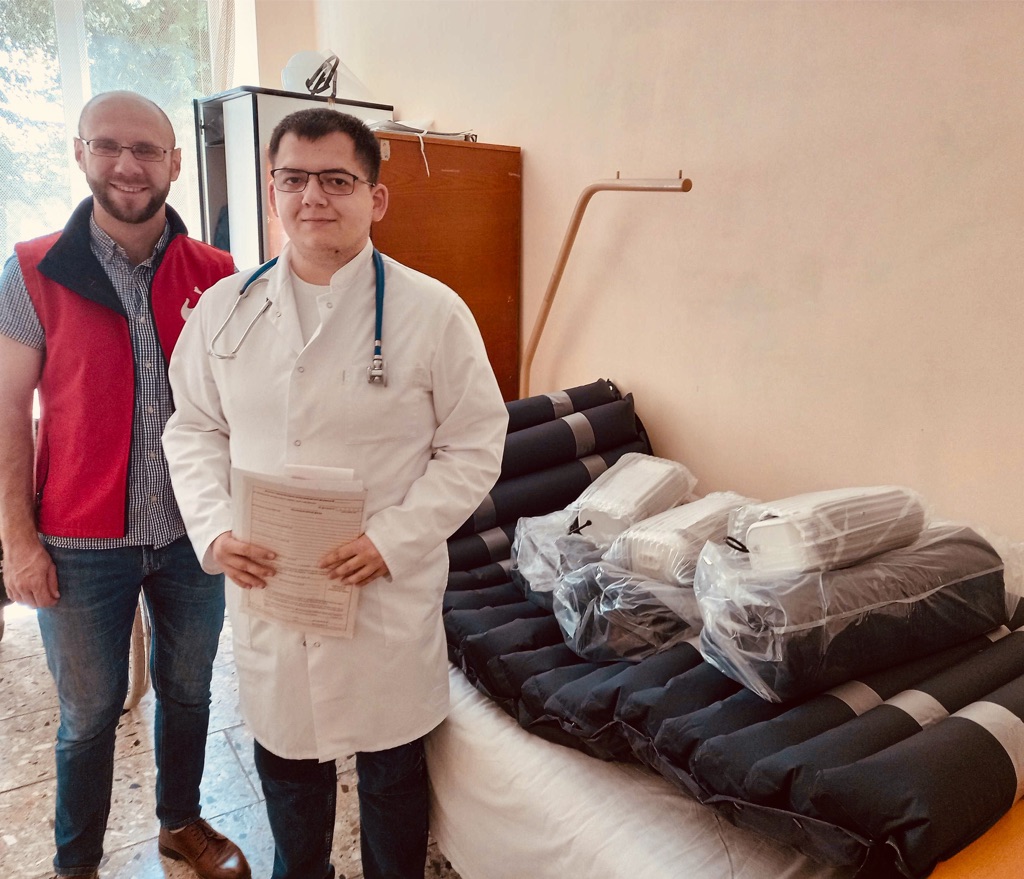
Wes Comfort from the HHI Disaster Response Team was in Ukraine earlier this summer to check on the arrival of HHI’s first three portable medical clinics (donated by Clinic in a Can and Worksite Labs) and to help partners determine needs and locations for the next 12 clinics.
All 15 of these clinics will help alleviate the stress from the influx of patients at hospitals by offering extra space and serve as stand-alone clinics in areas where the existing medical infrastructure has been destroyed or damaged.
